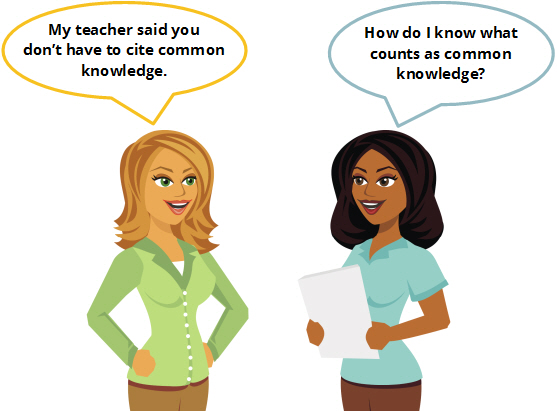 If information is very well known to most people, it may be considered “common knowledge,” and it does not need to be cited.
If information is very well known to most people, it may be considered “common knowledge,” and it does not need to be cited.
Examples of common knowledge:
- January is the first month of the year.
- Tokyo is the capital of Japan.
- The earth revolves around the sun.
- Soccer, or futbol, is a popular sport worldwide.
- Water freezes at 0 degrees Celsius.
- The Eifel Tower is located in Paris.
- Facebook is a social media network.
- An equilateral triangle is a triangle with three equal sides.
- The sun sets in the west.
- The Titanic was a ship that sank on its first voyage.
It is not always clear what “common knowledge” is. If the information is found in general references and if most people know it, it may be considered common knowledge.
However, what is commonly known in one field may not be known by the general public.
NOTE: If you aren’t sure if something can be considered common knowledge, it is always safer to cite it.
